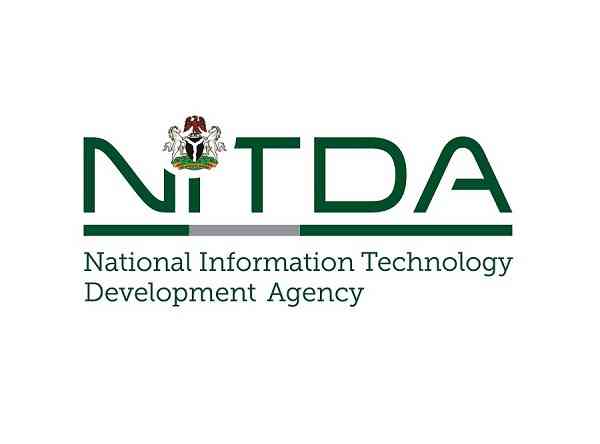
As the world becomes increasingly dependent on digital technologies, the National Information Technology Development Agency (NITDA) through the digital transformation technical working groups (DT-TWGs) conducted a five-day workshop with seven federal public institutions (FPIs) to enable seamless implementation of Nigeria’s e-government master plan.
DT-TWGs are required to ensure that all ICT and digital technologies-related policies and regulations are adhered to by their organisations to foster the development of a sustainable digital economy.
The director-general, NITDA, Mallam Kashifu Abdullahi, represented by the director, IT infrastructure solutions (ITIS), Dr. Usman Abdullahi, while declaring the workshop open, recalled that the Nigeria e-Government Master Plan (Ne-GMP) was approved and launched by the Federal Executive Council on May 24, 2019.
He added that President Muhammadu Buhari, alongside the Minister of Communications and Digital Economy, Prof. Isa Pantami unveiled and launched the National Digital Economy Policy and Strategy (NDEPS) for a digital Nigeria at the opening ceremony of the e-Nigeria conference, exhibitions and awards on November 28, 2019.
According to the DG both documents set clear directions for government digital transformation in Nigeria, which the NITDA is taking strategic steps to implement.
“To reduce the complexity associated with digital transformation and accelerate the achievement of expected values from the deployment of IT systems, digital technologies, innovations, and edge against the lack of strategic architecture, insufficient collaboration, integration, sourcing, or effective project management, NITDA in 2018 and 2019 developed the Nigeria e-Government Interoperability Framework (Ne-GIF) and the Nigeria Government Enterprise Architecture (NGEA),” he said.
He noted that globally, enterprise architecture (EA) is utilised as a standard tool for implementing digital transformation plans and strategies.
“These documents form the foundation for taking government-wide IT deployment from silo-based to an integrated whole-of-government approach and ultimately an asset for digital government transformation.”
He elaborated that the seven layers of NGEA – business, service, data, application, it infrastructure, security and performance – are centred around people and processes, with each layer having high-level expectations for FPIs, and as well specified best practices, standards, tools, reference models and recommendations that will help achieve the value propositions and citizens’ expectations for government digital services.
Hence, he said, NITDA, under the directives of the Federal Ministry of Communications and Digital Economy, has embarked on initiatives such as the NGEA/Ne-GIF National Implementation Committee comprising of about 40 critical FPIs’ representatives and IT industry players to govern and advise on government-wide digitisation of processes and functions, phased assessment of IT systems, digital services and capabilities for 200 FPIs to establish AS-IS situation analysis.
In addition, the agency improved the capacity for over 448 DT-TWG members across the 100 FPIs inaugurated earlier and several others, in line with implementing the e-government master plan.
“Digital transformation calls for a rethink in how public institutions do business and deliver public value and experience to customers. Transformation cannot happen effectively on the outside unless it happens on the inside,” he noted.
Consequently, NITDA has taken another step to establish digital transformation technical working groups in 7 federal public institutions to advocate for the digital economy and digital transformation-related activities, advise management on adoption and utilisation of digital technologies for business transformation and effective digital service delivery, guide automation and digitisation of government business processes, provide support and guidance for initiation and implementation of IT projects.
The groups shall also ensure IT and government business alignment, propose and implement initiatives to enhance and ensure that government digital services (GDS) and IT projects implementation comply with the provisions of NDEPS, Ne-GMP, IT Projects Clearance Policy and Guidelines, Ne-GIF, NGEA, NDPR and other national ICT/e-government documents.
Other roles include the development and implementation of organisational ICT plan and enterprise architecture (EA), including solution architecture for IT deployment and other functions that may be assigned by the Federal Government through the Federal Ministry of Communications and Digital Economy, in line with the provision of NITDA Act 2007.
At the closing ceremony of the five-day training, the DG noted that the workshop is expected to foster collaboration among government institutions.
“The digital economy journey that you are experiencing today and in your various organisations is the move that will propel the transformation that we desire. Since this foundational architecture has been put in place, I am convinced that you will go back to your respective organisations to be champions of digital transformation,” said Abdullahi.
The seven FPIs that participated in the training are the Nigerian Institute of Advanced Legal Studies (NIALS), Nigerian Civil Aviation Authority (NCAA), Nigerian Shippers’ Council (NSC), National Emergency Management Agency (NEMA), Nigeria Institute of Securities Studies (NISS), Public Service Institute of Nigeria (PSIN) and National Commission for Refugees, Migrants & internally Displaced Persons (NCFRMI).
The director-general spoke through the acting director, corporate planning and strategy, Dr. Aristotle Onumo.


